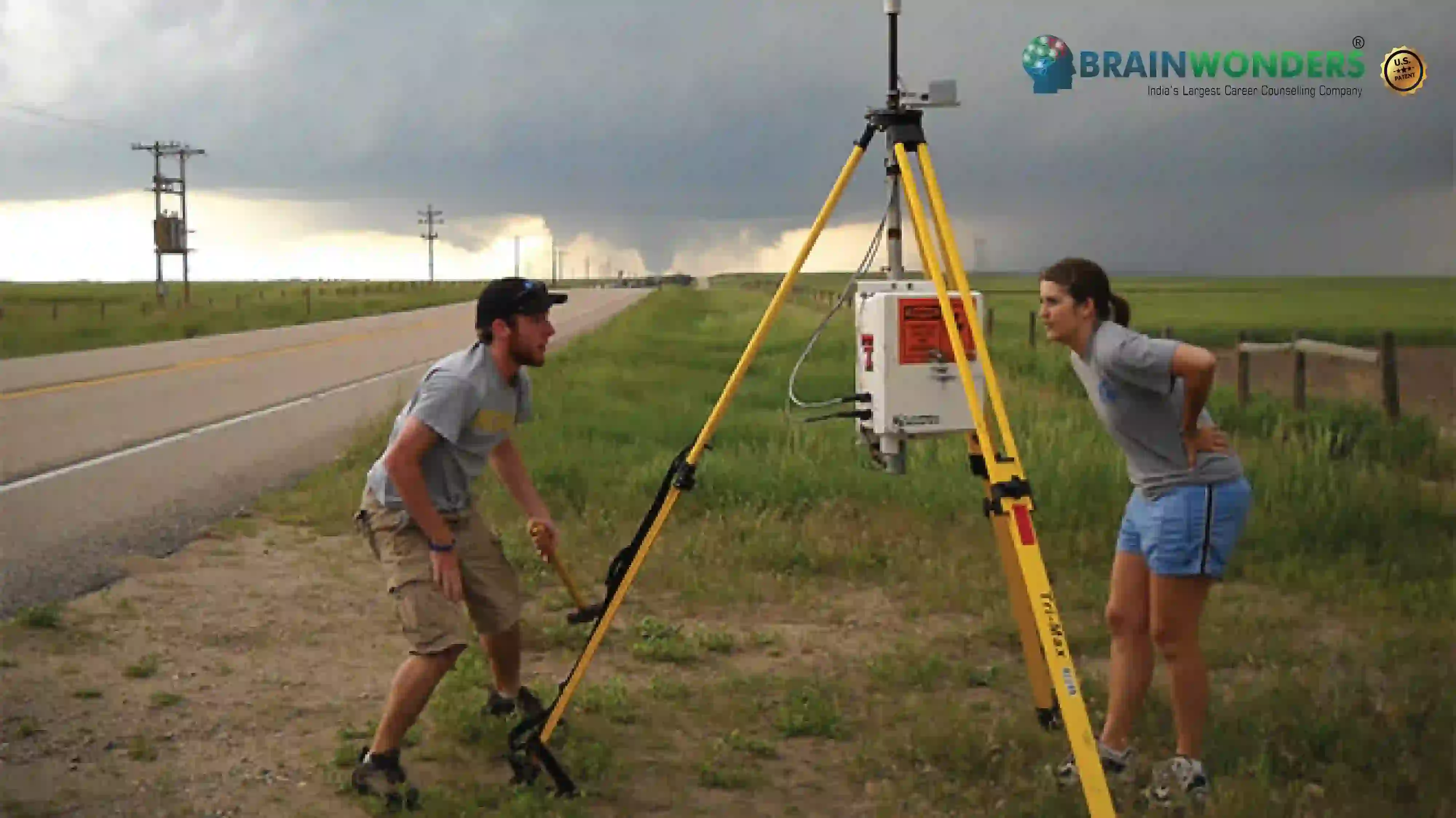How to become an Astronomer
Overview, Courses, Exam, Colleges, Pathways, Salary

Overview
Who is Astronomer ?
Astronomers are the scientists of the stars, galaxies, planets and celestial bodies of the universe. They do not just work in the space but also work concerning the celestial bodies of the entire universe. They focus their study and work on particular and specific questions, on particular celestial objects of the universe or fields that are essentially outside the expanse of the earth. Astronomers make use of their strong observational skills, research prone tendencies, various inductive and deductive methods along with the strong theoretical methodology to explore, research and delve into their field of study.
Some of the areas that astronomers study include the origin of the universe, the black hole, the nature of time, black holes, objects in the solar system, neutron stars or even other galaxies. Their efforts are directed towards contributing towards the understanding of the fabric of the universe. As individuals, astronomers are extremely curious, with a deep understanding of various subjects such as physics, chemistry, applied mathematics, statistics, instrumentation, biology, among others. This is so because astronomy has the potential of encompassing a diversity of investigation topics.
An astronomer may find employment opportunities at national observatories, aerospace firms, planetariums, science museums, and government-funded laboratories. There are usually two major types of astronomers: first being the observational astronomers, and second being the theoretical. It is usually understood that the observational astronomers make direct and precise observations of various celestial objects, eventually leading to the analyzation of its data. Whereas, theoretical astronomers often create and also investigate on the models or things that are more difficult to observe. Since it takes a lot of time, particularly millions of years for any universal system or even a galaxy to complete one particular life cycle, these professionals observe the snapshots of various systems and areas that align at particular points to understand and determine their evolution.
Typical day at work
What does Astronomer do?
The roles and responsibilities of an astronomer include:
- To collect data about relevant phenomena using modern scientific tools and analyse the data accordingly
- To collaboratively work with other astronomers and researchers in the field
- Contribute to the body of literature by developing theories and testing them, running numerical models etc
- Work on designing and developing software related to astronomical analysis and observation
- Drafting proposals for research, writing research articles, applying for funding to conduct research
- Studying celestial objects such as the planets, galaxies and universe using scientific instruments and the laws of physics and mathematics
- To teach at universities as well as mentor and guide students in the field
- To present research findings in conferences, give guest lectures at educational institutes
Abilities and Aptitude needed
What are the skills, abilities & aptitude needed to become Astronomer?
Being an astronomer is a highly demanding job that requires the individual to be extremely proficient in various technical, logical and analytical skills such as they need to be absolutely thorough with their mathematical skills, their physics and practical science based knowledge, their computing skills as well as they should be thorough with working in the science oriented (and technology prone) software.
A very considerate aspect of the job is preferably required by the individual to be involved in research, whether it be conducting original research and publishing it, re-analyzing the older data and aligning it with the new advancements and discoveries found in the research, or simply reviewing the current or any previous based literature to maintain their own professional knowledge. An astronomer shall need to be highly observant and analytical, while also being self-disciplined and patient. This is one quality that is highly appreciated in any research field, that is being self-disciplined and patient. However, since this field works with the intangible things, or the aspects that are clearly not visible to the naked eyes, keeping patient and highly disciplined is absolutely necessary to gain stability in one's ideology and mindset leading to gaining authority and certainty in their professional research.
Critical thinking and problem-solving skills are also few of the most important aspects required for this field. Since these scientists are frequently required to deal with and work in the capacity of the most intricate and complex scientific problems, their composed nature, analytical mindset and strong focus is highly commendable. In fact, their training is also focused on a broad set of problem- solving skills, decision making skills, analytical and reasoning skills. These professionals are naturally expected to have good abstract thinking and knowledge considering the complexity and intricacy of their work. Astronomers also need to be able to communicate effectively and work collaboratively with students and fellow colleagues. These are some of the skill sets and requirements that has the capacity to make any individual a better scientist, and any scientist to move towards being a better astronomer.
Salary
Salary for Astronomer?
The salary of an "Astronomer" can vary significantly based on factors such as the astronomer's qualifications, experience, country of employment, the type of institution they work in, and whether they hold academic or research positions.
- Minimum Monthly Salary: The monthly salary for astronomers can range from approximately INR 30,000 to INR 60,000 or more, depending on the above factors.
- Maximum Monthly Salary: The monthly salary for astronomers can vary widely, with some experienced astronomers earning around INR 1,00,000 to INR 2,00,000 or more.
- Annual Salary: The annual salary of an astronomer can range from approximately INR 3,60,000 to INR 7,20,000 or more.
- Highest Paying Job and Scope: The highest paying job for astronomers is often in leadership or specialized research positions within prestigious research institutions, universities, or government agencies. The scope for astronomers is promising, as the study of the universe and space exploration continues to be an area of significant scientific interest.
Pathways
How to become an Astronomer?
Entrance Exam
Entrance Exam for Astronomer ?
In order to enrol into a Bachelor’s program at an esteemed university, aspirants are expected to clear the JEE main and subsequently, the JEE Advance exam which makes the aspirant eligible to apply anywhere in India. It is a very difficult and challenging exam to crack that requires hard work as well as rigorous and consistent preparation. Some states have their own entrance exams that are admissible in their respective universities. Many educational institutes conduct their own entrance tests.
Courses
Which course I can pursue?
Best Colleges
Which are the best colleges to attend to become an Astronomer?
Industries
Which Industries are open for Astronomer?
Aspirants may apply for the following astronomer related job profiles:
- Astrophysics
- Aerospace Engineering
- Climatologist
- Chemical Engineer
- Computer System Analyst Lecturer
- Electrical Engineer
- Geophysicist
- Mathematician
- Planetarium Director
- Research Scientist
- Telescope Engineer
internship
Are there internships available for Astronomer?
In any given field, along with theoretical knowledge, it is always an added advantage to get an on-ground experience that enhances the aspirant’s understanding of the domain. It is highly encouraged to take up an internship and gain exposure to the latest software and hardware tools, methodologies and technology. Aspirants may seek internships while studying and even after graduation. Many education boards have made it mandatory to take up at least one internship during the course of their degree program in order to better prepare the candidates for competence in the real world. In order to become an astronomer, aspirants must start
Career outlook
What does the future look like for Astronomer?
Astronomy is one of the most fascinating, niche career options for space and physics enthusiasts. Especially early in their career, an Astronomer should expect having to spend long hours in observatories, particularly around night-time, as well as travelling to attend conferences and meetings. Astronomers frequently work in government research centers and national facilities as well as at universities and research institutions. Many Astronomy PhD holders start as postdoctoral researchers, working alongside experienced scientists before advancing to senior positions themselves. Since Astronomy is a relatively small field, there is a smaller turnover of positions each year, making it competitive as well.
Being well-versed in areas such as instrumentation and computer applications to broader problems can allow one to secure jobs in other areas related to astronomy as well. There are employment opportunities for Astronomers in the private industry as well, in consulting firms and businesses which seek to employ the skills and knowledge of astronomers in related areas. Other settings where they can secure positions include planetariums, science museums. They can also work as science journalists, lab technicians, computer programmers.
Astronomers are supposed to be good at their imagination. As rightly said by the great Indian leaders and freedom fighter, every individual, most importantly every scientist has to be good at their imagination, because it is their imagination itself that caters to their curiosity, their inquisitive nature and their thirst to learn more. Beside been able to think creatively and enhancing their curiosity, it is important for them to gain in-depth knowledge. This can lead them to taking any specialization field easily an confidently like Cosmologists, Observational Astronomers, Theoretical Astronomers, Optical and Radio Astronomy, etc.






